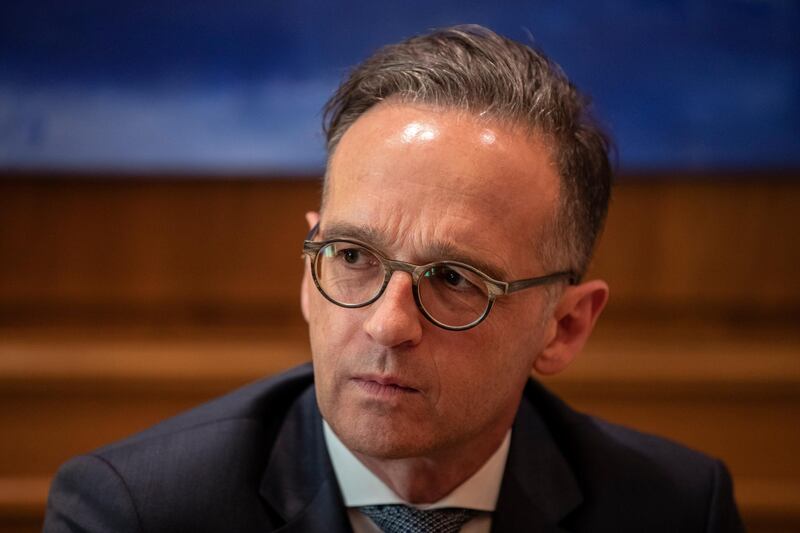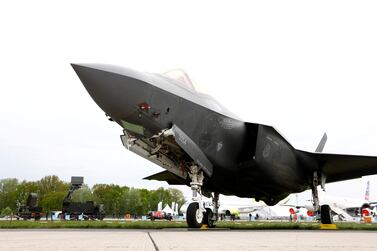The German Foreign Minister, Heiko Maas, has warned of his fears over tension in the Mediterranean as he flew into London on Wednesday for talks with his British equivalent, Dominic Raab.
In a diplomatic offensive, Mr Maas has criss-crossed the region from Athens to the British capital, and held phone conversations with Egyptian Foreign Minister, Sameh Shoukry.
Efforts to salvage the German diplomatic initiative on Libya have steadily intensified.
Berlin is also leading European efforts to encourage restraint by Turkey after it declared a joint maritime zone with Tripoli.
Mr Maas warned Turkey that it was undermining its position with Europe.
"We have a very clear position: international law must be respected," he said.
"Therefore, progress in relations with Turkey can only be achieved if Ankara avoids provocations in the eastern Mediterranean.
“This is the condition for there to be any future-oriented dialogue between the European Union and Turkey.”
After the Brexit split with Europe, Britain is keen to show Germany that it remains a partner in diplomacy, including in the Mena region.
Talks also focused on the wider European position in its neighbourhood, including the extent of Russian influence.
China's role in Hong Kong was also discussed, with Britain forging ahead on an independent sanction policy for the first time, while the Europeans have been trying to work out a common position.
Very nice gesture by Foreign Secretary Raab. Hosted German Foreign Minister Maas at Chevening House. Showed old map of Germany before talks started. Minister's birthplace Saarlouis could be found on it. pic.twitter.com/ytsbjZUIsd
— Andreas Michaelis (@GermanAmbUK) July 22, 2020
"In their meeting today, Foreign Minister Maas and Foreign Secretary Raab have discussed China, Russia and the Middle East, as well as a wide range of other issues," Andreas Michaelis, the German ambassador to London, said on Twitter.
"Strong focus on co-ordinated or joint approaches."
With the US role in security policy of the Mediterranean region now uncertain, Libya is, in the words of a US diplomat, "first of all a European problem".
The are breaches of the arms embargo across the Mediterranean, with munitions "often brought to Libya via chartered ships or planes", Mr Maas said.
He has said that Germany could push for sanctions on companies, people and entities involved in breaches of the UN embargo, possibly at the EU level. Germany currently holds the rotating presidency of the EU.
As Britain no longer has a voice at the EU table, the Germans would look to France.
French president Emmanuel Macron left tense talks over the European coronavirus bailout at the weekend to discuss Libya with US President Donald Trump.
Nathalie Loiseau, a senior Member of the European Parliament for Mr Macron's party and chairwoman of legislature's security and defence committee, accused Turkey of waging a "proxy war" in Libya.
"Turkey’s actions only make a political settlement in Libya more difficult and aggravate the risk of a partition of the country, which would have terrible consequences for Libya’s neighbours in Tunisia, Egypt, the Sahel, and Europe," Ms Loiseau wrote for the Atlantic Council
"Ankara doesn’t seem to care."
She said Turkey’s rationale for supporting the Libyan government in Tripoli "hardly covers Ankara’s more tangible economic and strategic aspirations in the conflict, which go directly against European security interests and sovereignty".
"Ankara rushed to support the Tripoli government, and in exchange Tripoli rushed to grant Turkey a maritime agreement that contravenes the legitimate rights of Greece, another Nato member, and Cyprus," Ms Loiseau wrote.
"Turkey has also proceeded with illegal gas drilling in the territorial waters of Cyprus, despite warnings and sanctions from the EU."







